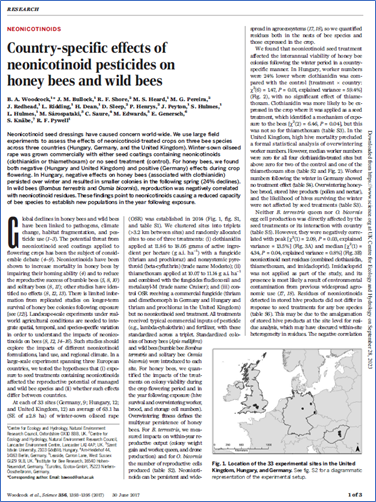Jenny talking about the NHMS with a stand and lecture at the British Beekeeping Show in February 2023:
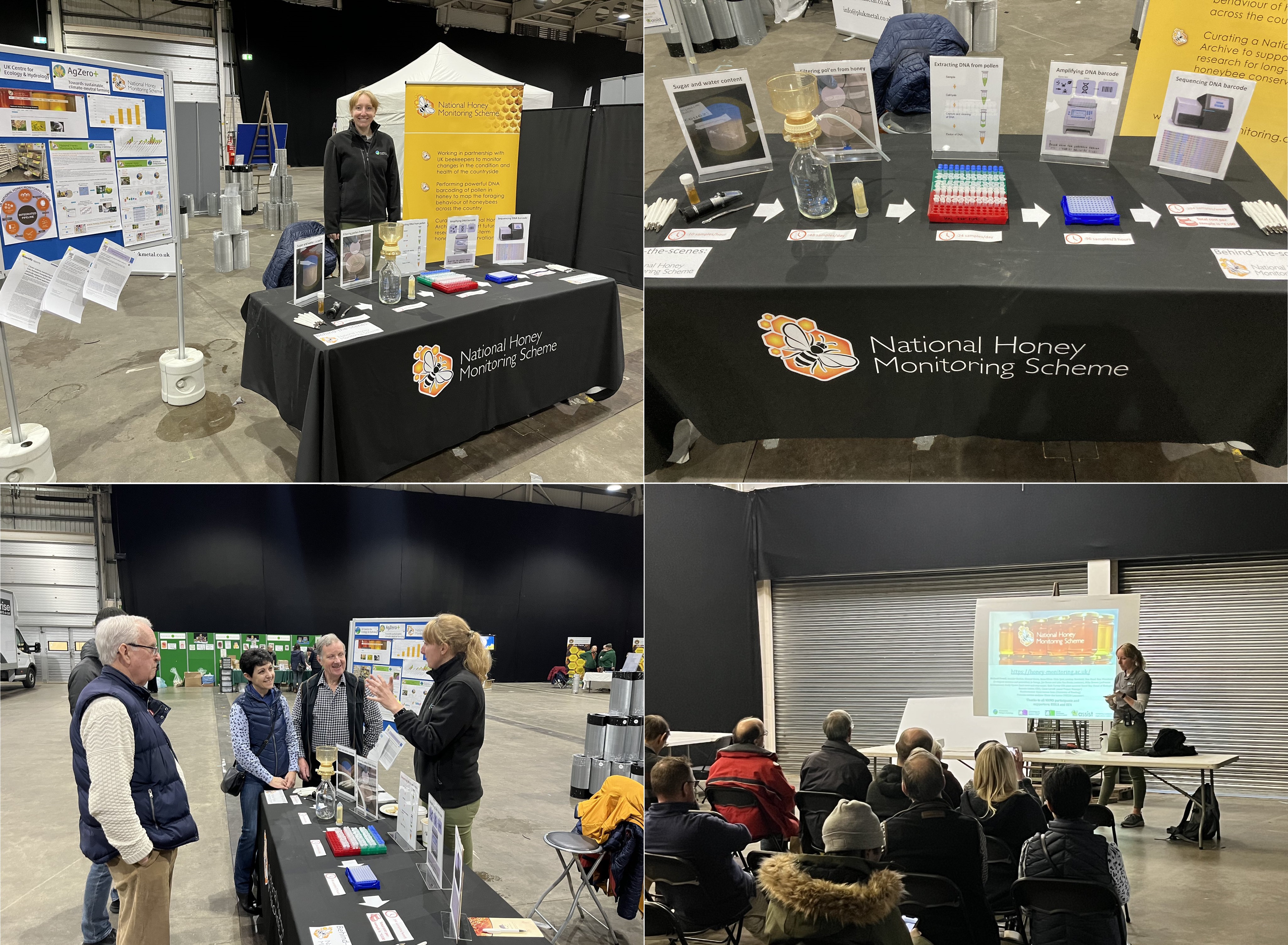

The National Honey Monitoring Scheme (NHMS) team are always keen to present at shows and give talks to beekeeping associations. If this is something you're interested in, please email honey@ceh.ac.uk.
Jenny talking about the NHMS with a stand and lecture at the British Beekeeping Show in February 2023:

Talk about the NHMS for the entoLIVE series run by the Biological Recording Company:
2023 talks to beekeeping associations:
February - Hampshire Beekeeper's Association (HBA)
September - Gwent Beekeepers
October - Malvern and Upton Beekeepers Assocation; Solihull and District Beekeepers; Cornwall Beekeeping Association - Bodmin group; Vale & Downland Beekeepers' Association
2024 talks to beekeeping associations:
January - Fife Beekeepers Association, Dingwall & District Beekeepers' Association
February - Scottish Beekeepers, Middlesex Beekeeper's Association, Laddingford District Bee Keepers
We send out a monthly newsletter to beekeepers participating in the scheme with updates on sample processing. If you would like to be subscribed to the newsletter please email honey@ceh.ac.uk.
We regularly post updates on the scheme, along with articles of interest, on our Twitter page @CEH_Honey.
The methods used by the scheme are published in an open-access journal so that anyone wishing to follow a standardised protocol for extracting DNA from pollen in honey and identifying it by sequencing can do so:
www.sciencedirect.com/science/article/pii/S2215016121000960
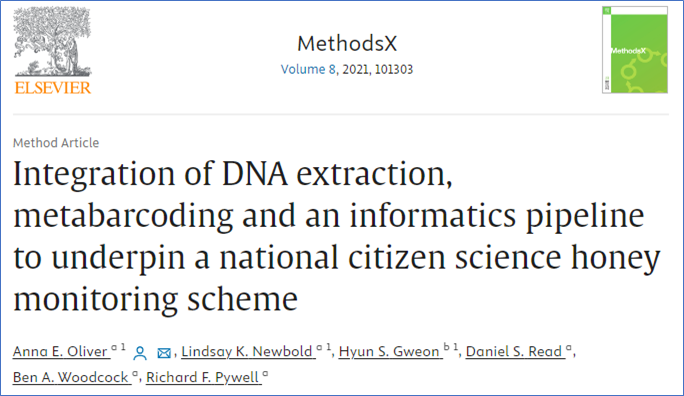
The code used to analyse the pollen DNA sequences produced by the scheme is available here: github.com/hsgweon/honeypi
In 2022, Dr Ben Woodcock et al. published a study using 527 honey samples collected by the scheme in 2019 and analysed for both pollen and pesticide content to quantify how agricultural intensification is affecting the number of plant species that honeybees are feeding on as well as how exposure to pesticides has increased the risk of bees becoming diseased. The full article can be found at:
www.nature.com/articles/s41598-022-18672-0
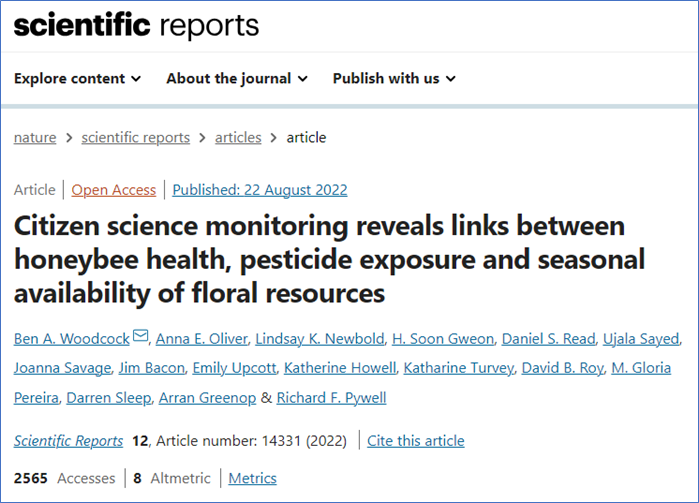
The following study used honey collected both within and before the creation of the NHMS to look at how the widely used insecticide neonicotinoids continued to turn up in honey samples. One of the main focuses of this paper was how the use of neonicotinoids on non-flowering crops like wheat and sugar beet (which continued after the ban on neonicotinoid use on oilseed rape in 2013 until the full ban in 2018) may have still posed a risk to bees. This risk results from residues of neonicotinoids in the soil being taken up by wild flowers or other flowering crops which the bees then feed on. A full version of this paper is available by e-mailing Ben Woodcock (bawood@ceh.ac.uk).
www.sciencedirect.com/science/article/pii/S0167880920303911
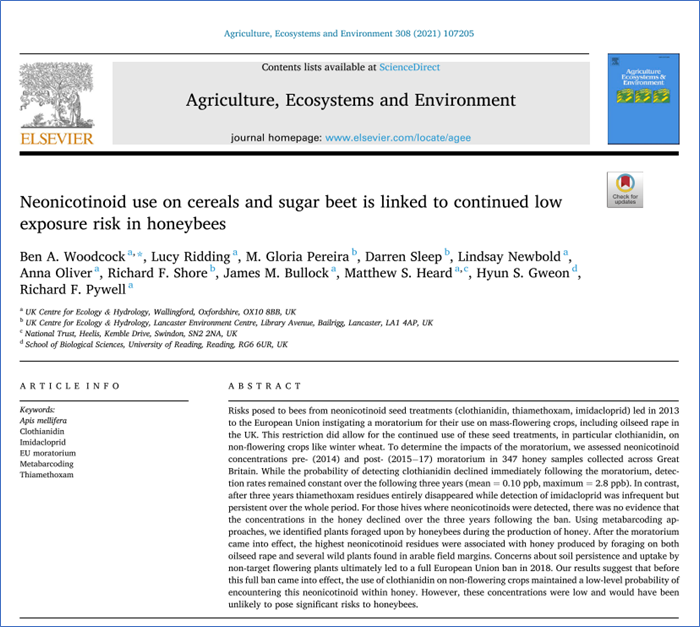
In 2018 this study used honey provided by beekeepers to look at residues of neonicotinoids (the seed treatment widely applied to oilseed rape and banned in 2018). This was a precursor to the NHMS and was the first time we worked with beekeepers to get access to honey samples for scientific analysis. This paper is available at:
https://journals.plos.org/plosone/article?id=10.1371/journal.pone.0189681
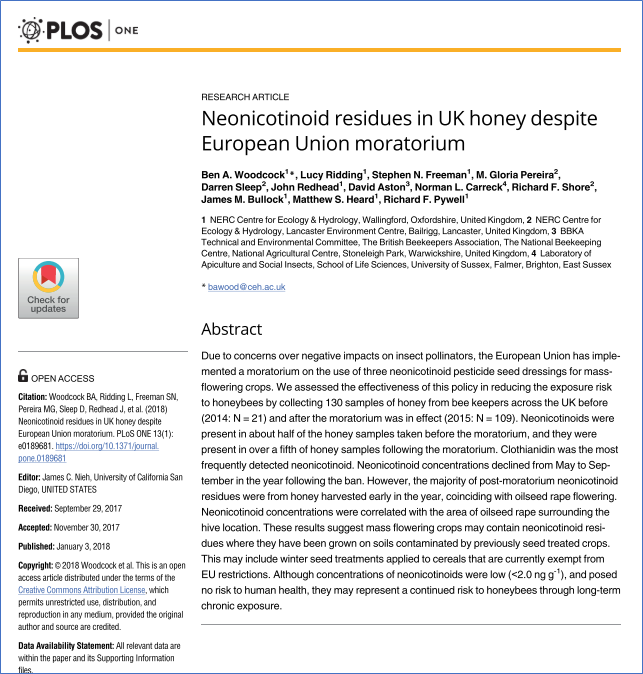
The following paper was published in Science in 2017 and was undertaken by the UKCEH team that now run the NHMS. This multicounty experiment performed in England, Germany and Hungary on oilseed rape found that neonicotinoid exposure reduces overwintering success of honeybees and colony reproduction in wild bees. These field results confirm that neonicotinoids negatively affect pollinator health under realistic agricultural conditions. This was a critical piece of research they led to the final ban of neonicotinoids in 2018. If you would like a full copy of this paper please e-mail Ben Woodcock (bawood@ceh.ac.uk):
www.science.org/doi/10.1126/science.aaa1190
